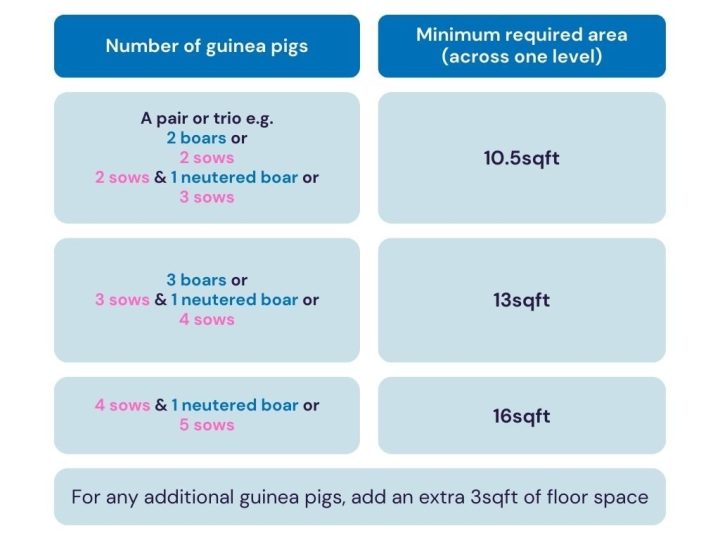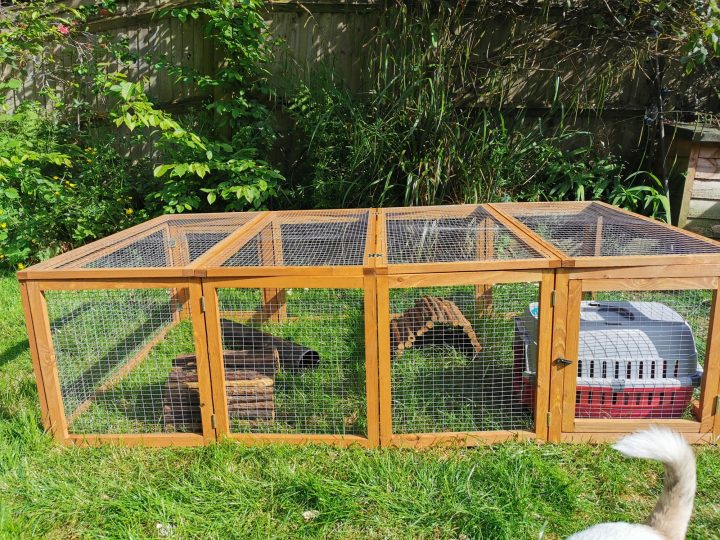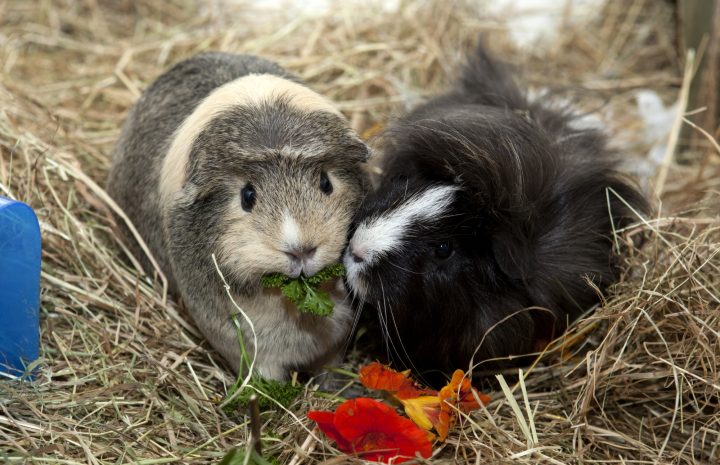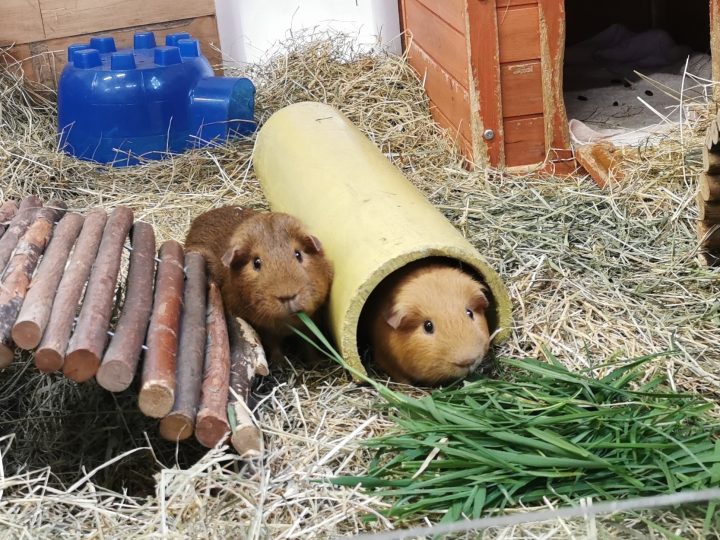Provide a suitable and stimulating living environment
Guinea pigs can be curious and comical animals, but it is important to remember that they are prey animals and can be easily startled, providing them with a secure and spacious enclosure away from other animals and young children is important to make them feel comfortable. Guinea pigs require plenty of unbroken floor space on one level to keep them active and healthy. The amount of space you need to provide will depend on how many guinea pigs are in the herd, please see the table for our minimum size requirements.
Guinea pigs are sensitive to temperature changes and drafts, they should ideally be kept at temperatures of around 15 °C which means that it is not suitable to keep them outdoors in the cold months (October - April). Guinea pigs benefit from being kept predominantly indoors with access to an outdoor enclosure or run on warm, dry days. Outdoor hutches can be used during the warmer months, providing they can be moved indoors to avoid cold, wet weather.

Provide a suitable and stimulating living environment
Guinea pigs can be curious and comical animals, but it is important to remember that they are prey animals and can be easily startled, providing them with a secure and spacious enclosure away from other animals and young children is important to make them feel comfortable. Guinea pigs require plenty of unbroken floor space on one level to keep them active and healthy. The amount of space you need to provide will depend on how many guinea pigs are in the herd, please see the table for our minimum size requirements.
Guinea pigs are sensitive to temperature changes and drafts, they should ideally be kept at temperatures of around 15 °C which means that it is not suitable to keep them outdoors in the cold months (October - April). Guinea pigs benefit from being kept predominantly indoors with access to an outdoor enclosure or run on warm, dry days. Outdoor hutches can be used during the warmer months, providing they can be moved indoors to avoid cold, wet weather.


